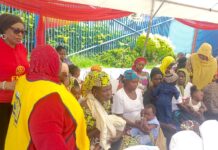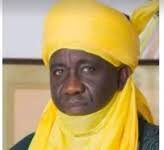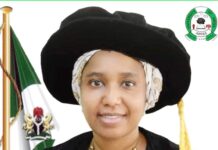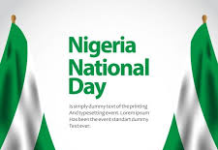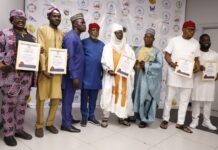How Technology is Aiding Credible Elections in Nigeria
By Abbas Badmus, Zeenat Sambo and Fom Gyem
Technology, in recent years, has played a vital role in shaping the electoral process in Nigeria.
The adoption of cutting-edge technologies and initiatives by the Independent National Electoral Commission (INEC) has reaffirmed its commitment to deliver a free and fair election without interference.
Prior to the move by INEC, Nigeria battled with an analogue voting system corrupted by vote rigging, and ballot box snatching, to mention a few.
But it was in 2011 that INEC’s resolve to sanitize Nigeria’s electoral process began to manifest. By 2015 and during the general elections, tech voting mechanisms were introduced to ease the voting activity, counting and verification.
Technologies like the biometric voters registration, online pre-registration, the Permanent Voters’ Card (PVC) with chips, and creating online portals for candidates, observers and political party agents, amongst others have helped to standardise Nigeria’s election management system till date.
Apart from voting, results management is easily the most critical aspect of election administration. While voting is an open and public activity, results management is usually run by a few election officials, mostly outside the glare of the public. Thus, there is need to promote transparency in the best possible way.
The evolution of tech tools to assist election process brought about multiple innovations and inventions by INEC to power the success of the 2023 presidential and gubernatorial forthcoming elections, in the country.
According to the INEC Chairman, Professor Mahmood Yakubu, their Commission has introduced 22 new innovations like the Smart Card Reader (SCR), Bimodal Voter Accreditation System (BVAS), NEC Results Viewing Portal, Uploading of results in real-time using the BVAS, Collation Support and Results Verification System (CSRVS), Situation Room, Election Monitoring and Support Centre, and Compliance and Threat Data Acquisition and Sharing System.
Read Also:
Others include Security Alert and Notification System, Basic Security in Election Duty, Election Risk Management Tool, Citizen’s engagement and voter education, Election Violence Mitigation and Advocacy Tool, TEI Virtual Library, Operations Management Information System (OMIS), and Logistics Management System.
By using technology in voter registration, INEC was able to identify approximately 2.7 million double registrations and simplify the voting process through the use of biometrics and digital data, thus making it easier for eligible persons to register to vote.
An innovation developed by Yiaga Africa, the Election Result Analysis Dashboard (ERAD) allows real-time aggregation and analysis of polling unit results uploaded to the IReV. It increases transparency and credibility in the election process, and citizens are not required to wait until traditional media announces the results, allowing them to know the results immediately.
The dashboard can identify potential issues or discrepancies in the results and help to detect electoral malpractice and increase the overall integrity of the election.
While leveraging on technology via the introduction of Smart Card Readers and its use in recording accreditation data was crucial in controlling malpractice and voting by proxy, it also played an important role in assisting the Presiding Officer to be “satisfied” that the Permanent Voters Card being presented was a legitimate card for voting, and that the voter is actually the person in the register.
With the new Electoral Act 2022, the Commission has the option to use electronic means for accreditation and results management, ensuring a smooth voting process will be easier with the use of technology.
To achieve the best results, the legal framework, administrative procedures, and transperant electoral processes are to be taken into consideration to ensure hitch free elections in Nigeria, henceforth.
However, INEC, political aspirants, and stakeholders should collaborate more on utilizing, adhering, and cooperating more to ensure excellent quality and standard electoral process in Nigeria. That’s one of the ways to help nurture the country’s nascent democracy.







